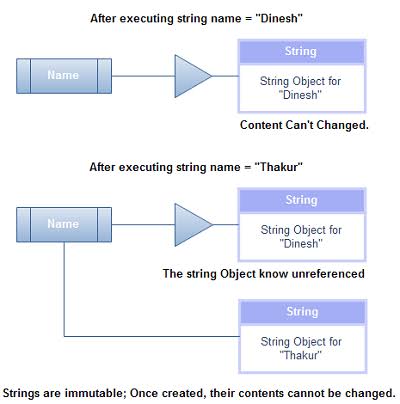Why Are Strings Immutable in Java? Protection and Efficiency Conveniences
Wiki Article
What Is Immutable Strings and Exactly How It Works
In the realm of programming, understanding the idea of unalterable strings is vital for developing protected and durable applications. Immutable strings refer to strings that can not be changed after they are developed, ensuring information integrity and predictability within the code.The Basics of Unalterable Strings
Unalterable strings, as a basic idea in shows, are character series that can not be changed once they are produced. This means that as soon as a string is designated a value, that value can not be modified. In languages like Python and Java, strings are unalterable items, causing numerous implications in terms of memory management and information stability.Among the crucial benefits of immutable strings is that they provide a feeling of safety in data manipulation. Since the material of an immutable string can not be customized, it guarantees that the initial data stays intact, decreasing the danger of unintended modifications throughout program execution (Why are strings immutable in Java?). This home additionally streamlines debugging procedures, as programmers can rely on that once a string is specified, its worth will not be unintentionally altered
Moreover, unalterable strings promote efficient memory usage. When a brand-new string is developed based on an existing one, instead of changing the initial string, the brand-new worth is stored individually. This approach enhances performance by decreasing memory fragmentation and streamlining memory allocation procedures. Generally, recognizing the essentials of immutable strings is vital for mastering shows ideas and optimizing code efficiency.
Benefits of Unalterable Strings
Structure upon the safety and efficiency advantages of unalterable strings, their benefits encompass improving code dependability and streamlining concurrent programs tasks. By being unalterable, strings can not be customized after production, which gets rid of the threat of unplanned modifications in the data they keep. This fundamental immutability ensures that once a string is developed, its worth stays constant throughout the program's implementation, minimizing the possibilities of bugs triggered by unforeseen alterations.In addition, immutable strings add to code integrity by making it easier to reason concerning the state of a program. Because strings can not be changed, programmers can trust that a string will constantly hold the same worth, simplifying debugging and upkeep initiatives. This predictability brings about much more stable and trustworthy codebases.

Execution in Programs Languages
Within different programming languages, the consolidation of unalterable strings is a fundamental facet that influences how information is dealt with and controlled within code frameworks. The implementation of unalterable strings varies across different shows languages, with each language providing its own devices to support this idea.

In comparison, languages like C and C++ do not have built-in support for immutable strings. Developers in these languages should manually execute immutability by imposing regulations within their code to avoid straight modifications to string objects.
Best Practices for Dealing With Immutable Strings
When handling immutable strings in programming languages like Java and Python, adhering to finest methods ensures protected and effective data adjustment. Among the key finest techniques is to use StringBuilder or StringBuffer as opposed to straight controling strings, specifically when dealing with considerable concatenation procedures. These classes supply mutable options for string manipulation, aiding to stay clear of unnecessary memory allocations and enhancing performance.Additionally, when working with check it out delicate information such as passwords or API tricks, it is critical to avoid saving them as plain text in unalterable strings. Using protected storage systems like char varieties or specialized collections for managing sensitive information helps minimize protection risks associated with immutable strings.
Real-world Applications and Examples
Exploring sensible executions of unalterable strings in different markets discloses their considerable impact on information honesty and system integrity. In the medical care market, immutable strings play a vital role in making sure the safety and security and confidentiality of individual data. By preventing unauthorized adjustments to delicate information click resources such as clinical documents and prescriptions, unalterable strings assist preserve compliance with stringent personal privacy laws like HIPAA.Banks additionally gain from the immutable nature of strings to boost the protection of client data and deal records. Immutable strings aid stop scams and unauthorized alterations to financial information, giving a durable defense against cyber dangers and ensuring the trust fund and confidence of clients.

Final Thought
Finally, immutable strings are dealt with and unchangeable series of characters that use advantages such as thread safety and enhanced performance in programs. They are applied in different shows languages to guarantee information integrity and safety. Finest techniques for collaborating with unalterable strings include preventing straight alterations and making use of methods that return new string items. Real-world applications of immutable strings include information file encryption, caching, and string adjustment tasks.Unalterable strings refer to strings that can not be modified after they are produced, making certain data honesty and predictability within the code. When a brand-new string is produced based on an existing one, rather than customizing the original string, the brand-new worth is kept separately.In languages like Java and Python, strings are immutable by default, indicating that as soon as a string things is produced, its value can not be altered - Why are strings immutable in Java?. Finest methods for working with immutable strings consist of avoiding straight modifications and making use of techniques that return brand-new string items. Real-world applications of unalterable strings include information file encryption, caching, and string control jobs
Report this wiki page